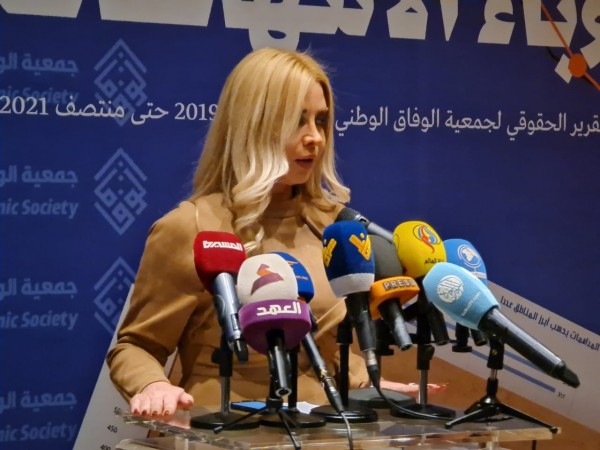Why is Bahrain Creating a Political Crisis with Lebanon?

2021-12-20 - 7:57 p
Bahrain Mirror (Exclusive): The conference held by Al-Wefaq to launch a human rights report in the Lebanese capital, Beirut, is not the first Bahraini opposition activity, and will not be its last, of course. However, we can say that this conference included no provocation to the regime in Bahrain that would evoke all this alerting.
On the contrary, the press conference organized by Al-Wefaq a week ago was preceded by dozens of events that had a stricter tone and higher ceiling when addressing the regime. All of these events were held in Beirut, while the regime did nothing or expressed annoyance at such events.
At several stages, Baghdad, Cairo and Damascus were capitals of Arab opposition, but the circumstances changed as the regimes and their interests changed. However, Beirut has always continued, at all stages, to host and accommodate everyone. Beirut has always been accepted by all.
Beirut hasn't changed or surprised anyone. Nonetheless, the ruling family in Bahrain returned to practice its hobby and profession which it became an expert in crisis trading.
Bahrain's hostile rhetoric towards Lebanon was not new, of course, and was clearly expressed on more than one occasion by former Bahraini Foreign Minister Khalid Al Khalifa, who was eager to draft an official Arab speech that was courteous to Israel and hostile to Arab countries such as Iraq, Syria and Lebanon.
Khalid Al Khalifa resorted to vulgar diplomacy to attack Lebanon, Hezbollah and its Secretary-General Hasan Nasrallah. He even supported the Israeli aggression against Lebanon openly, shamelessly, and has openly incited the Israeli entity to attack and destroy Lebanon.
Putting aside Bahrain's hostile rhetoric toward Lebanon, we will discover that there is another reason for this Bahraini alert against Lebanon, called "crisis trade".
Since 2011, the King of Bahrain has played a dangerous game in politics. He surprised everyone by turning his country into a starting point for creating crises and tensions in the region, in exchange for generous financial and political support from Saudi Arabia and the UAE, which enabled him to suppress and kill his people with no consequences.
Regarding the relationship with Iran, we always find Bahrain to be a source of aggravation and a place for creating problems. We notice that Bahrain has always been the first to worsen its relationship with Iran (on the Gulf level), and the last to rebuild that relationship, as is now happening regarding the restoration of the Saudi-Iranian and UAE-Iranian relations, as the Bahraini hostility against Iran continues.
We also find that Bahrain was the first to announce severing ties with Qatar, followed by Saudi Arabia, the UAE and Egypt, although all the world knows that Bahrain was just a follower and that the decision to sever ties was Saudi and Emirati. However, Bahrain has always decided to take the first step and play the dirty role that its Emirati and Saudi neighbors avoided.
This is the case with Lebanon today. There is no need for such alert, as Al-Wefaq launched a human rights report, technically, but Bahrain saw it as a new opportunity to disturb the atmosphere, especially with the crisis of Kordahi's statements, which opened the door to an unprecedented Saudi attack on Lebanon.
As soon as this crisis was about to come to an end thanks to a French mediation, Bahrain poisoned the atmosphere again. Relations with Lebanon are restrained.
What the King of Bahrain is doing to the country is a crime that certainly has no national interest. His actions are only bills he pays to his funders and supporters who have been financing him since 2011, so that he can suppress his people comfortably and without inconvenience. Unfortunately, he does not find it difficult to do so, even if this means renouncing the sovereignty of his country and prioritizing the interests of his neighbors over his country's interests.
- 2024-05-08Bahrain: One Step Forward, Two Steps Back
- 2024-05-06Ali Haji May Face Imprisonment Again on Charges of "Penetrating a Restricted Area"
- 2024-05-01Was the Resumption of Flights with Iraq Expected?
- 2024-04-20Recent Releases in Bahrain: Something Has Changed
- 2024-04-04Return of Repression to Bahrain's Streets with the Crown Prince and Prime Minister's Blessing